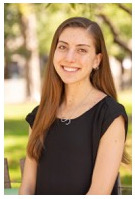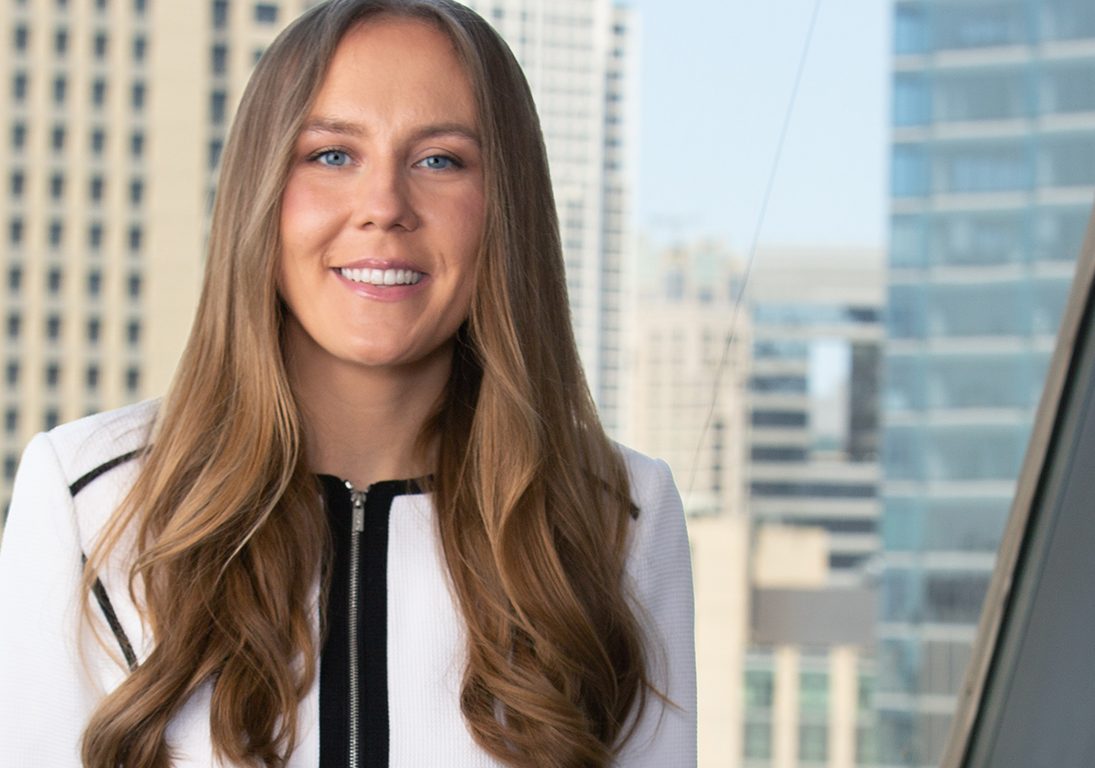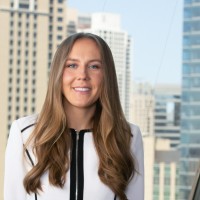Monika Malek is an associate in Vedder Price’s Chicago office and a member of the firm’s Intellectual Property (IP) group. She maintains a broad practice spanning trademark, copyright and patent litigation, prosecution (writing and filing a patent), enforcement (monitoring for potential infringement or enforcing an owner’s rights) and portfolio management (advising on business strategies associated with a patent). Prior to joining Vedder Price, she was an associate at a boutique law firm where she worked closely with clients on litigation and transactional matters involving a wide range of IP issues. She earned her law degree from Loyola University Chicago School of Law and her undergraduate degree in Biology from the University of Minnesota, Twin Cities. While in law school, she was awarded Loyola’s Laura Terlizzi Scholarship, given to a female student intending to practice intellectual property law, and three CALI Awards for the highest grade in Copyright, IP Advocacy, and IP Colloquium. She also researched issues related to drug patents in domestic and international contexts as a research assistant to Professor Ho.
Tell me a bit about your path into your career in intellectual property.
I was working in a research lab in my junior year of college, trying to figure out my next steps. I wasn’t interested in medical school, so I looked into pursuing a PhD in a lab. However, after some time working in the lab, I realized I didn’t want to do that either. Another research assistant in the lab was pursuing a dual JD and Master’s degree and she wanted to be a patent attorney. I had never heard of that before. She told me more about her law school experience and what she hoped to do as a patent attorney. I thought it was very interesting! Simultaneously, at the lab, one of our innovations was patented and sold to a biotech company in Texas, and that company licensed it to Merck for nearly one billion dollars. That was when I realized the value of patents and the high stakes of the industry. I was hooked.
What type of work do you currently do?
Today, I do a mix of patent, trademark, and copyright work. I really like the variety. I’m also working on a false advertising case right now which is gearing up for trial. While false advertising litigation isn’t one of the three core areas we think of when we think IP, the claims are brought under the Lanham Act, which is the federal law that is better known for trademarks.
Correct me if I’m wrong, but is it uncommon for someone to work on multiple types of IP?
It is uncommon! Most bigger firms will typically have attorneys practicing one type of intellectual property for instance trademark prosecution or patent litigation and you then become hyper specialized in the work you do. At Vedder, our IP group is smaller, so we do everything. As a young attorney, I really like it because I get a breadth of experience without pigeon-holing myself into one area of the law. I get the ups and downs of litigation and fill in the “in between” with trademark and patent prosecution (because this work is consistently available).
How did you pick Loyola and why would you recommend it to someone else?
In deciding where I wanted to go to law school, I applied to schools in New York, Chicago, DC, and California. I got into a few schools, but I realized I wanted to come home to Chicago. Loyola has a great intellectual property program, and I knew its location and reputation were going to set me up for success upon graduating. Loyola also has an impressive alumni network. In any firm in Chicago, big or small, the likelihood of a Loyola alumnus working there is very high. In terms of the location, being in the city is a huge asset as it allows you to work as a law clerk in a law firm or to do a judicial externship while still in law school.
At Loyola, what were some of the things you were involved with?
I was pretty heavily involved with all things IP. Obviously, IPLS. I also helped start IP Bytes (check out one of her articles here!) with Professor Ho, and I participated in the IP Colloquium. I was also on the Consumer Law Review and I also participated in one of Loyola’s clinics, which I highly recommend to all students. I did the Veterans Practicum which was a subset of the Community Law Clinic. It was great because I got to work directly with clients, conduct interviews, and go to court with a 7/11 license.
I am currently a member of the Richard Linn American Inn of Court, a professional association of primarily IP attorneys. Prof. Ho will typically select two 3L students to be student members and that is how I got involved with the organization. I’ve had the opportunity to meet many other IP attorneys and as well as judges from the Northern District and the Federal Circuit. I would totally recommend joining any professional association like CBA, IPLAC or CHIWIP during law school. Often these groups provide you with great networking and job opportunities, and help you meet people outside of your law school network.
What is a non-IP course you would recommend?
I loved Law & Psychology. It’s an awesome class that requires you to focus on three habits to create a healthier lifestyle. We discussed some of the issues attorneys might experience, in practice and one’s own personal life, and how to avoid them. One of the most important habits was to get eight hours of sleep every night. We started class everyday saying if we did our habits over the previous week. Ultimately it was a great class to learn about mindfulness. The trial practice intensive course during the J-term is so great, even if you don’t think you’re interested in litigation. You get the opportunity to put on two trials in one week, including taking depositions and submitting evidence, and everything in between. You get four credits out of the way for the entire spring semester!
What is some advice you would give yourself in law school?
At the beginning of law school, you put way too much pressure on yourself, which is natural since everything is new. For me, writing essay exams was completely new. I only did multiple choice and short answer questions during college. It can be overwhelming. So, taking a step back and approaching class and exams with a calm demeanor will help you perform better. I used this mentality studying for the bar exam.
I would also say make connections with people. Those connections will be incredibly valuable once you enter the profession. Work hard in school and it will help you build a strong reputation. Take a lot of practical courses. And have fun!

Sophia Gunzburg
Associate Blogger
Loyola University Chicago School of Law, J.D. 2024

